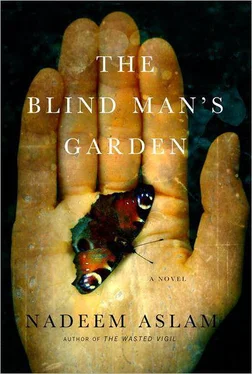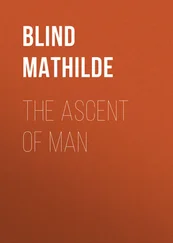‘I am jeopardising his income.’
‘He likes you. Go to sleep.’
*
He looks at the map, planning his four-hundred-kilometre route back to Heer.
From Megiddo he will go to Tank by the local bus. Then a bus from Tank will take him to Dera Ismail Khan in about two hours. From Dera Ismail Khan — through the salt marshes and barren parched distances that had led to the British administrators and missionaries calling it Dreary Dismal Khan — he would go to Rawalpindi by bus again, this journey lasting four or five hours.
And from Rawalpindi to Heer on the train will be another five hours.
He will have to ask Akbar for money. He could do labouring work in the bazaar but he suspects it would sully the family name to have someone associated with it do menial work for others.
The bus ticket from Tank to Dera Ismail Khan will be about eighty rupees. From Dera Ismail Khan to Rawalpindi about four hundred, and the train fare from Rawalpindi to Heer about three hundred …
But there is a chance of police checks at the Rawalpindi bus terminal — Rawalpindi being the home city of Pakistan’s military — so maybe he should go through Sargodha …
The cruelty of distance. When living in his parents’ painted room in Heer, with Naheed married to Jeo, he would think how close the neighbourhood with Rohan’s house was in some respects. It was just three miles away. It was just an hour away. It was just a nine-rupee rickshaw ride away. But it was an eternity away because his dream was there. Now Heer is probably two hundred years in prison away. Or a thousand volts of electricity fed into his body away. A lethal injection away.
He cannot jettison the feeling that the dot at the centre of the concentric circles had looked like a target. There is a dizzy sense of convergence and he feels himself being watched, now that he knows there are others here whose presence he had been unaware of. It’s dawn and he sits on the riverbank with the snow leopard on his knee, the white spot at the end of its tail curving in the air restlessly, the pulse of impatient blood.
He looks into its eyes. ‘The expression on your face says, Why do you keep looking in that direction? My answer is, “No particular reason.”’
You were looking for the girl.
‘I wasn’t.’
You were.
‘So what if I was?’
I am actually glad . The cub nudges the air with its nose, sniffs his hand. Do you think Naheed is going to leave Jeo for you?
From his pocket Mikal takes the small white ball he has carved out of a block of saptaparni heartwood in the gun factory. The wood is white when first sawn, soft and fine-textured, and coffins are also made from it, and tea chests and masks, and he rolls the ball on the ground, watching the cub set off towards it in dives. In the wild a grown snow leopard can leap seven times its body length. ‘Let’s change the subject,’ he says.
No. What do you think is going to happen between you and Naheed?
‘Are you sure you are a leopard and not a serpent?’
You have to move on .
The ice the cook had pressed into his forehead was wrapped in flowered cloth and when he unfolded it he realised it was a sleeve torn from an old kameez and he had briefly wondered who it had belonged to.
But even the most distant prospect of forming an attachment, daring to approach another, when his only experience of it so far has ended in suffering, fills him with intense dread.
From behind him a shadow advances on the slope towards them and the small desert doves drinking from the water’s edge rise in coils and he turns and sees her standing behind him.
‘I thought I heard talking,’ she says. He stands up just as the birds pass overhead in their circular flight and return to settle on the river at another spot further down, the wingbeats sounding in the cool air and scattering the haze. She turns around to leave. ‘I am sorry. I didn’t mean to disturb you.’
‘I was just talking to myself,’ he says. He is too stunned to say anything more. Akbar said he could speak English because the younger children — meaning himself and his twin, and this sister — had been sent to be educated at the best schools in Lahore. She was brought back here to be married at sixteen, to the young man who would die in Afghanistan. Perhaps the time in Lahore counts for her courage in approaching him now. There were four other brothers, who had been murdered over the course of the past three decades, all involving blood feuds whose origins were several decades old.
‘I woke up when Father left for the mosque and couldn’t go back to sleep.’
‘Me too,’ Mikal says. The man drives the Datsun pickup to Megiddo to say his dawn prayers. The other four prayers of the day he might say at home, depending on the circumstances, but he likes to be at the mosque for the first one.
‘I should go.’
He inhales and realises that he had smelt the perfume on her clothes during the days he lay unconscious. ‘Thank you for the cub.’
‘He has grown.’ There is a fraction of a smile. To reveal more to this stranger would be indecency. ‘He shouldn’t be here, of course. He should be up somewhere in Chitral. One of our guests brought it with him. The mother died soon after giving birth. It hadn’t even opened its eyes when they arrived.’
‘They stay shut for the first ten days or so.’
She seems to think for a few moments. ‘It was exactly after ten days that he opened them. So he was probably only hours old when he was given to me.’
He lifts the cub and hands it to her and she holds it, the tips of her fingers disappearing into the fur. She must be eighteen years old, nineteen at most.
‘My name is Mikal.’
‘Yes, Akbar told me.’ She holds out the cub. ‘I should go.’
‘I am sorry to hear about your husband and brother.’ He lifts the saptaparni -wood ball and moves towards her and holds it before the leopard’s face, both of them almost joined through the sphere and the creature.
‘I approved of him going,’ she says. ‘I wanted them to defend Afghanistan, he and my brothers. I would have gone myself if it was permitted. Father blames the clerics who arranged for them to go, he says rageful things against al-Qaeda and the Taliban.’
That explains the man’s censoriousness towards Mikal. He thinks Mikal is a jihadi, the killer of American soldiers, the hardened militant who hadn’t even revealed his name while in American captivity. He must be in torment at the fact that Akbar and his elder brother have given shelter to al-Qaeda fugitives. One evening he had heard an argument between him and the brothers.
‘He was crazed with grief when the two bodies arrived, and Akbar was still missing. We thought Akbar’s return would bring him some peace, but —’ Suddenly she stops speaking and lets the cub slip to the ground, Mikal hearing the Datsun coming in through the gate in the boundary wall a few seconds after she has heard it.
‘My name is Salomi,’ she says as she walks away, disappearing into the grove, and he climbs up from the riverbank to see the father emerge from the pickup and go into the house, the vehicle’s paintwork smeared here and there with petals where the roadside wild flowers, dew-covered, must have thrashed against it during the journey.
After breakfast he drives to Megiddo to have the kitchen’s gas canisters refilled, parking the Datsun near a herd of black and brown camels just outside the mosque. A caravan of powindah gypsies is passing, descendants of tribes who crossed from Central Asia and Afghanistan all the way to Calcutta in the far east of the subcontinent, trading goods, song and news, the British taking them and their camels to open up the Western Australian Desert in the nineteenth century. The men of the bazaar recognise him as belonging to Akbar’s family and he is obliged to sit and drink tea. There has been a raid in a town a hundred miles away: Pakistani soldiers — assisted behind the scenes by Americans, no doubt — have raided a compound and, after a fourteen-hour battle, killed or taken away al-Qaeda figures sheltering there. Women, children, the old and the innocent — anyone who happened to be in the way — have been killed.
Читать дальше












